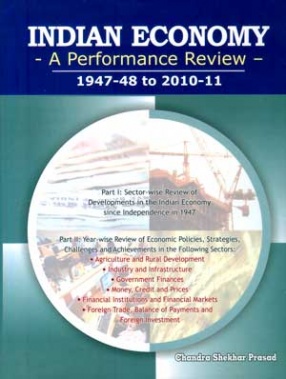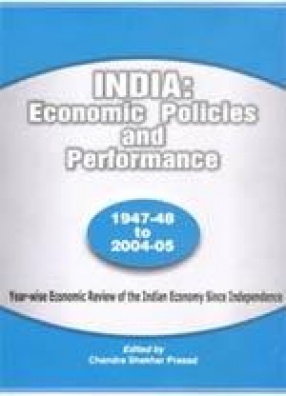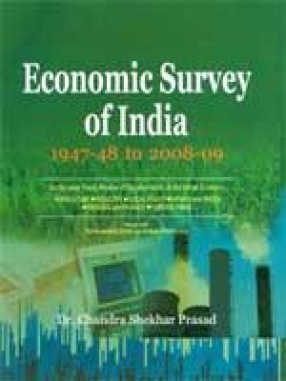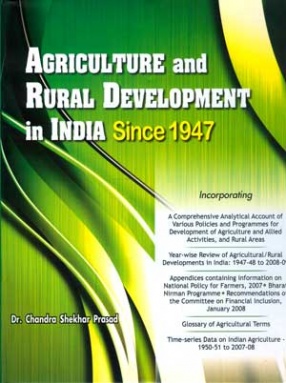Indian Economy: A Performance Review, 1947-48 to 2010-11
Synopsis
The development pattern of India during 1950-80 was characterized by strong centralized planning, government ownership of basic and key industries, excessive regulation and control of private enterprise, trade protectionism through tariff and non-tariff barriers and a cautious and selective approach towards foreign capital. It was quota, permit and license regime guided and controlled by a bureaucracy trained in colonial style. This so-called inward-looking, import substitution strategy of economic development began to be widely questioned with the beginning of 1980s. Policy makers started realizing the drawback of this strategy which inhibited competitiveness and efficiency and produced a much lower rate of growth than expected.
Consequently, economic reforms were set in motion, though on a modest scale, when controls on industries were reduced by the 1985 industrial policy. The economic reforms programme got a big boost when the Government announced a new industrial policy in the Indian Parliament on July 24, 1991. Since then, it is liberalisation, privatization and globalisation all the way and the process is underway. In the new liberlised industrial and trade environment, the Government is progressively assuming the role of a promoter, facilitator and catalytic agent instead of a regulator and controller of economic activities.
India is now Asia’s third largest economy and has the world’s fourth largest foreign exchange reserves. Technology, competition, and benchmarking to the best international practices are the driving forces of India’s development efforts. Technology is getting upgraded rapidly and competition in the market place has become fierce. The vibrant information technology (IT) industry is contributing immensely by providing information about latest technology and international business practices. India’s gradual and cautious approach to economic reforms has proved well-founded and the country is placed on a firm footing for future forays into domestic and global economic activities.
This book provides a comprehensive description and analysis of economic policies, strategies, challenges and achievements in various sectors of the Indian economy over the years.
Read more
Consequently, economic reforms were set in motion, though on a modest scale, when controls on industries were reduced by the 1985 industrial policy. The economic reforms programme got a big boost when the Government announced a new industrial policy in the Indian Parliament on July 24, 1991. Since then, it is liberalisation, privatization and globalisation all the way and the process is underway. In the new liberlised industrial and trade environment, the Government is progressively assuming the role of a promoter, facilitator and catalytic agent instead of a regulator and controller of economic activities.
India is now Asia’s third largest economy and has the world’s fourth largest foreign exchange reserves. Technology, competition, and benchmarking to the best international practices are the driving forces of India’s development efforts. Technology is getting upgraded rapidly and competition in the market place has become fierce. The vibrant information technology (IT) industry is contributing immensely by providing information about latest technology and international business practices. India’s gradual and cautious approach to economic reforms has proved well-founded and the country is placed on a firm footing for future forays into domestic and global economic activities.
This book provides a comprehensive description and analysis of economic policies, strategies, challenges and achievements in various sectors of the Indian economy over the years.
117.00
105.3
$
130.00 $
Free delivery Wolrdwidе in 10-18 days
Ships in 1-2 days from New Delhi
Membership for 1 Year $35.00
Get it now and save 10%
Get it now and save 10%
BECOME A MEMBER











Bibliographic information